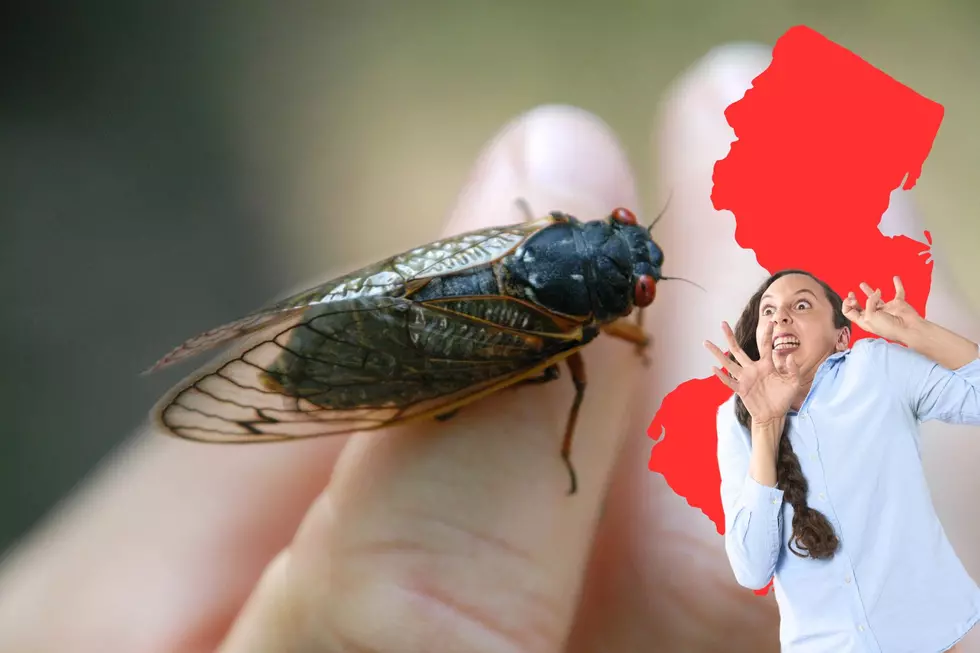
Wake Up, New Jersey! Are Billions of Cicadas Coming for Your Sleep This Summer?
Looking forward to summer in New Jersey? Don't forget about 'cicadapocalypse'.
2024 could very well be remembered as 'the year of the cicada'. Personally, I'm hoping to catch a glimpse of a few myself. I'm one of the rare folks that appreciate insects and their place in our world.
What is a Cicada?
Merriam-Webster defines a cicada as a homopterous insect with a stout body, wide blunt head, and large transparent wings. The male cicada makes a loud 'shrilling' sound, according to Oxford Dictionary.
Although these bugs are LOUD and large, I find them to be very beautiful. They have the most colorful eyes and translucent, details wings.
Double the Cicada Bugs Bound to Invade in 2024
This is going to be their year! Cicadas reportedly appear every 13 to 17 years. Well, guess what's happening in 2024. TWO 'broods' of cicadas will emerge. That will likely amount to billions of them flying into the Garden State come summertime. BILLIONS. Lucky us.
Entomologist (that's a bug expert) Frank Krell, Ph.D., with Denver Museum of Nature and Science, tells 6abc.com, "17 and 13 doesn't overlap too often".
Too often? No offense to Dr. Krell but 'too often' is an understatement. A 'double brood' cicada cycle is so rare an occurrence one hasn't happened since 1803! 221 YEARS ago!
As 6abc points out, the President of the United States in 1803 was freakin' Thomas Jefferson.

Will Cicadas Invade New Jersey in 2024?
According to 6abc.com, the event dubbed 'cicadapocalypse' is due this spring, probably during the month of May when soil conditions are JUST right.
Then the noisy little (okay, not so little) buggers will pop out of the ground, but mostly in the Midwest and Southeast United States. Brood 13 and Brood 19 are unfortunately not indigenous to New Jersey. NJ.com reports.
That doesn't mean New Jersey can't be affected though. Because cicadas fly, they're shells (exoskeletons) could fall over the ground in the Garden State this summer.
According to cicada expert Gene Kritsky, also a retired biology professor for Mount St. Joseph University, New Jersey will have to wait until 2025 to receive a full cicada invasion from Brood 14, which he tells NJ.com has been 13 years in the making.
Celebrities Who Died in 2023
Celebrities Who Have Learning Disabilities
Gallery Credit: Beth Mowbray
More From SoJO 104.9 FM









